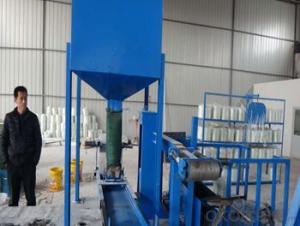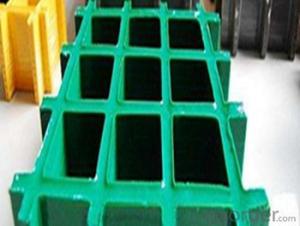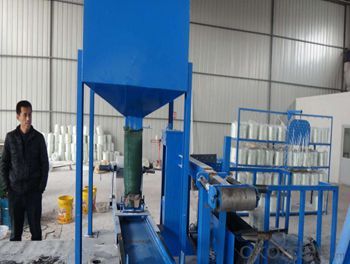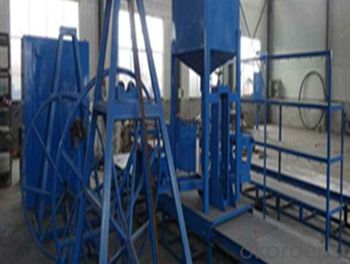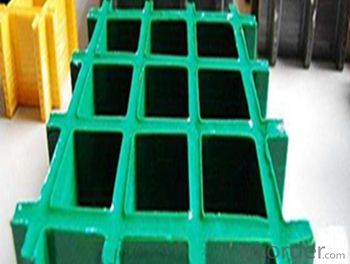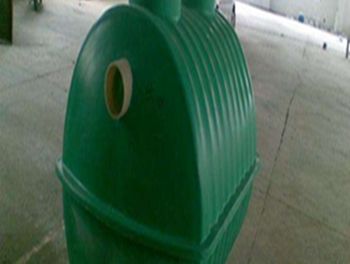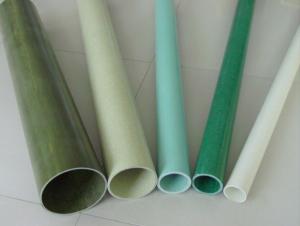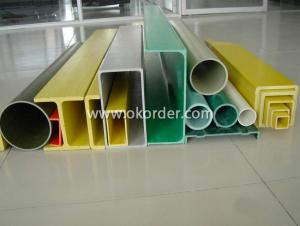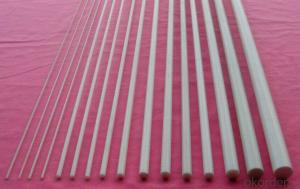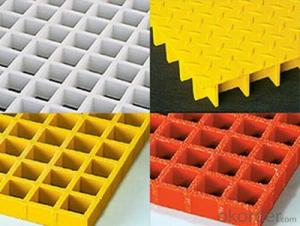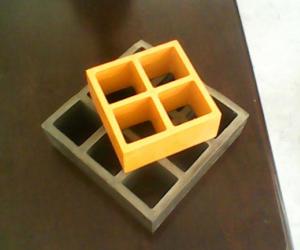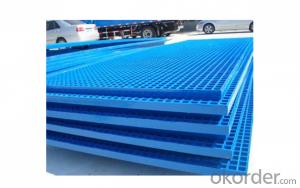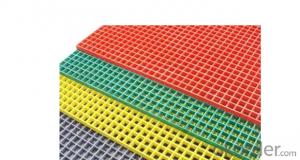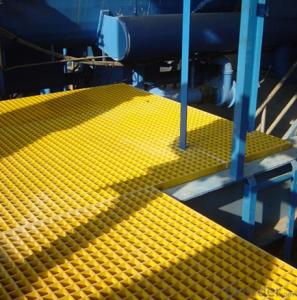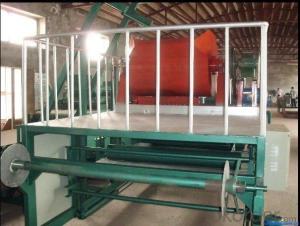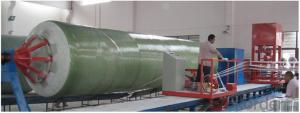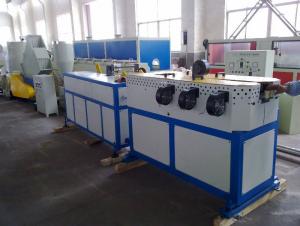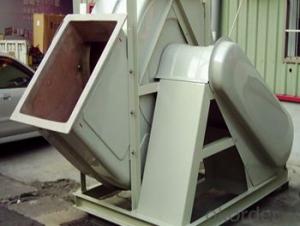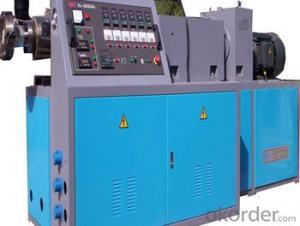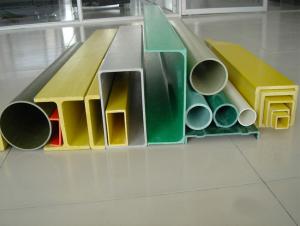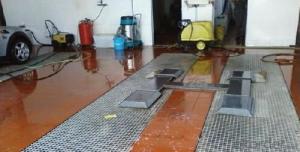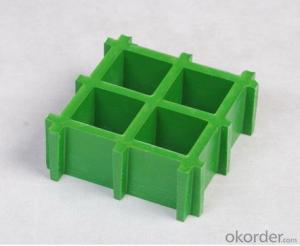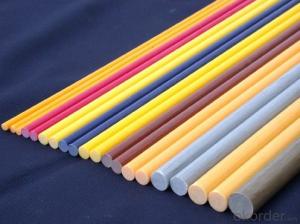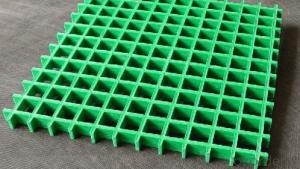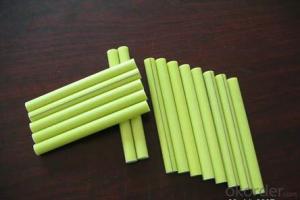FRP Pultrusion Profiles - FRP Pultruded Grating with Anti-Flammable and Good Quality
- Loading Port:
- Tianjin
- Payment Terms:
- TT OR LC
- Min Order Qty:
- 20000 m.t.
- Supply Capability:
- 300000 m.t./month
OKorder Service Pledge
OKorder Financial Service
You Might Also Like
Specification
PRODUCT DESCRIPTION
Pultruded grating is made by a particular assembly process, which using “I” shape as its main load-bearing and special rod to go through the bearing bar. Pultruded grating include the standard grating and the custom grating, the custom grating can be designed to meet customer’s requirement or special using condition by changing the shape, size and space of the bearing bars, the surface can be covered with lozenge panel, grit panel, or added the anti-slippery sand directly.
FRP pultruded grating has the most characteristics of molded grating, but it has its distinct advantages, it has very high fiberglass content in the loading direction, so it has very high load capability, it has more superiority when used at wide span, so that the basic support will be decreased and the project cost will be reduced accordingly.
SPECIFICATION
The standard space between two crossbars is 6 inch or 12 inch.
Thickness (mm) | Bar width (mm) | Open space (mm) | Open rate (%) | Approx weight (kg/m |
25.4 | 15.2 | 22.8 | 60 | 13.2 |
25.4 | 15.2 | 15.2 | 50 | 15.9 |
25.4 | 15.2 | 10.1 | 40 | 18.5 |
25.4 | 40 | 10.8 | 21 | 14.5 |
38.1 | 15.2 | 22.8 | 60 | 15.8 |
38.1 | 15.2 | 15.2 | 50 | 19.1 |
38.1 | 15.2 | 10.1 | 40 | 22.4 |
50.8 | 25.4 | 25.4 | 50 | 16.6 |
50.8 | 25.4 | 12.7 | 33 | 21.1 |
CHOICE FOR PULTRUDED GRATING
Resin: GP resin, ISO resin, VE resin, Phenol resin
Color choice: Yellow, gray, green, custom color
Surface choice: Groove surface, grit surface, lozenge cover surface
FEATURES
a. Anti-corrosion and anti-rust
b. Light weight and high strength
c. Anti-flammable
d. Anti- fatigue
e. Safe and anti-slippery
f. Anti-ageing
g. Easy of maintenance
h. Excellent electromagnetism property
i. Good economic benefit
FIELDS SERVED
Sewage treatment,
water supply and drainage,
chemical industry,
oil industry,
power engineering,
pulp and paper,
construction engineering,
spinning, marine engineering.
APPLICATION
Operation terrace,
stair walkway,
ground floor,
trench cover,
sidewalk,
foot bridge,
equipment safety fence,
scaffold.
COMPANT DESCRIPTION
CNBM,China National Building Materials Group is a state-owned enterprise in charge of administrative affairs in china building materials industry. Established in 1984, CNBM is a large group corporation of building materials with total assets of 25 billion RMB and a total staff of 30,000.CNBM now owns 200 subordinating firms of solely owned and joint-venture companies.
CNBM International Corporation is one subsidiary of CNBM, we focus on offering good-quality products,professional service and complete solution to our customers. Strong delivery capacity, advanced technology& management, strong financing capability and excellent after-sale service are our advantages in sharing international market.
FAQ
Q1.What's your sample policy?
A:We can supply the sample if we have ready parts in stock, but the customers have to pay the courier cost.
Q2.Can you produce according to the samples?
A: Yes, we can produce or modify the products according to your request.
Q3.How do you deliver the goods to my country?
A:We can provide international express, such as DHL, EMS, UPS, FedEx, etc. We select air freight and sea freight upon your requests. Quotations if without mentioning the shipping costs are shipping fee excluded.
Q4.How much does it cost to ship to my country?
A:When you goanna to place an order, please contact us, because different country has different freight.
Q5.How to get the catalogue?
A:please contact us and tell us what you are looking for.
PICTURES
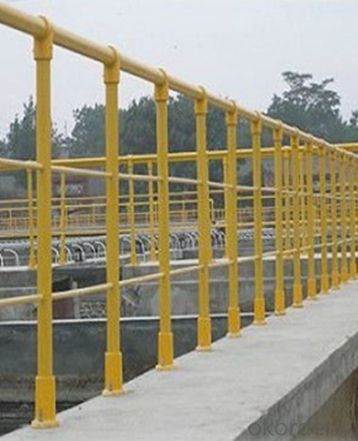
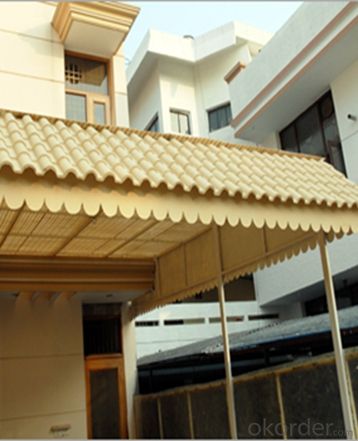
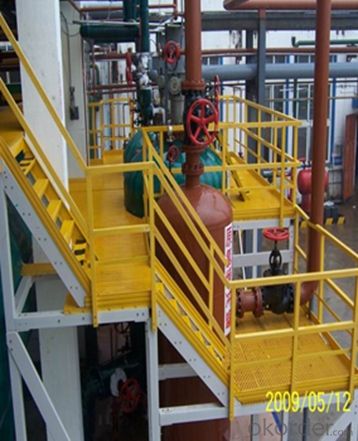
- Q: Are FRP pultrusion profiles resistant to seismic activity?
- Yes, FRP pultrusion profiles are generally resistant to seismic activity. Due to their high strength-to-weight ratio and excellent flexibility, FRP profiles have demonstrated great resilience and durability during seismic events. Additionally, their non-corrosive nature and superior fatigue resistance make them suitable for seismic-prone regions. However, specific design considerations and engineering analysis are necessary to ensure optimal performance in seismic conditions.
- Q: Can FRP pultrusion profiles be used in the construction of outdoor signage?
- Certainly, outdoor signage can utilize FRP pultrusion profiles. These profiles possess remarkable qualities, including durability, strength, and the ability to withstand different environmental conditions, rendering them ideal for outdoor use. Typically, these profiles consist of a combination of fiberglass reinforcement and resin matrix, resulting in a lightweight yet robust material. Outdoor signage often confronts harsh weather conditions, such as rain, sun exposure, and temperature fluctuations. FRP pultrusion profiles exhibit excellent resistance to corrosion, UV rays, and moisture, ensuring that the signage retains its structural integrity and visual appeal over time. Moreover, FRP pultrusion profiles offer customization options to fulfill specific design requirements, offering flexibility in creating distinctive and captivating outdoor signage. These profiles can be effortlessly shaped, cut, and assembled, making them a versatile choice for signage applications. In essence, the construction of outdoor signage can undoubtedly benefit from the use of FRP pultrusion profiles due to their durability, resistance to environmental conditions, and design flexibility.
- Q: Can FRP pultrusion profiles be used in the automotive industry?
- Yes, FRP (Fiber Reinforced Plastic) pultrusion profiles can definitely be used in the automotive industry. FRP pultrusion profiles offer several advantages that make them suitable for automotive applications. Firstly, FRP pultrusion profiles are lightweight, which is a crucial factor in the automotive industry as it helps in improving fuel efficiency and reducing overall vehicle weight. Lighter vehicles have lower energy consumption and emissions, making them more environmentally friendly. Secondly, FRP pultrusion profiles have excellent strength-to-weight ratio. This means they can provide high strength and stiffness while being lightweight. This property makes them ideal for structural components in automobiles, such as chassis, body panels, and support structures. Furthermore, FRP pultrusion profiles are highly corrosion-resistant, which is a significant advantage in automotive applications. Vehicles are often exposed to harsh environmental conditions, including moisture, salt, and chemicals. The corrosion resistance of FRP helps in ensuring the longevity and durability of automotive components, even in challenging environments. Additionally, FRP pultrusion profiles have good impact resistance, which is crucial for automotive safety. They can absorb and dissipate energy during impacts, reducing the risk of injury in case of accidents. Moreover, FRP pultrusion profiles can be customized and engineered to meet specific design requirements, allowing for versatility in automotive applications. They can be designed to have specific mechanical properties, shapes, and sizes, making them suitable for various automotive components. Overall, the lightweight, high strength, corrosion resistance, impact resistance, and customization options make FRP pultrusion profiles an excellent choice for the automotive industry. They offer numerous benefits, including improved fuel efficiency, enhanced safety, and prolonged component life, making them a viable alternative to traditional materials in automotive applications.
- Q: Are FRP pultrusion profiles resistant to alkaline substances?
- Yes, FRP pultrusion profiles are generally resistant to alkaline substances. The use of fiberglass reinforced polymer (FRP) in pultruded profiles provides excellent resistance to a wide range of chemicals, including alkaline substances. The resin used in the manufacturing process is typically a thermosetting polymer, such as polyester or vinyl ester, which offers high resistance to alkaline solutions. Moreover, the reinforcement of fiberglass imparts additional strength and durability to the profiles, making them highly resistant to corrosion and degradation from alkaline substances. However, it is important to note that the specific resistance of FRP pultrusion profiles to alkaline substances may vary depending on the specific resin formulation and manufacturing process. Therefore, it is recommended to consult with the manufacturer or supplier to ensure the profiles meet the desired resistance requirements for specific alkaline environments.
- Q: Can FRP pultrusion profiles be used in the agricultural and farming industry?
- Absolutely, FRP pultrusion profiles are indeed applicable in the agricultural and farming sector. Recognized for their exceptional strength, durability, and corrosion resistance, these profiles are highly suitable for outdoor and challenging environments typically found in this industry. A variety of agricultural and farming applications can benefit from these profiles, including: 1. Fencing and enclosures: By employing FRP pultrusion profiles, strong and enduring fences, gates, and enclosures can be created for safeguarding livestock and crops. These profiles possess resistance against rot, rust, and insect damage, ensuring reliable protection for animals and crops. 2. Structural components: Agricultural buildings, sheds, and greenhouses can utilize FRP pultrusion profiles as structural components. Thanks to their impressive strength-to-weight ratio, lightweight and durable structures can be constructed, capable of withstanding extreme weather conditions. 3. Irrigation systems: FRP pultrusion profiles can be harnessed for the construction of irrigation systems, including pipes, channels, and culverts. These profiles are non-corrosive with a smooth interior surface, reducing friction and improving water flow efficiency. 4. Equipment support and framing: Various agricultural equipment, such as conveyors, platforms, and machinery, can benefit from the support and framing provided by FRP pultrusion profiles. Their superior strength and stiffness make them suitable for heavy-duty applications. 5. Animal housing and equipment: Animal housing and equipment, such as pens, stalls, and feeding troughs, can be constructed using FRP pultrusion profiles. These profiles offer resistance against chemicals, moisture, and UV radiation, resulting in a long lifespan and low maintenance requirements. In conclusion, the outstanding mechanical properties, resistance to environmental factors, and versatility offered by FRP pultrusion profiles make them an excellent choice for the agricultural and farming industry.
- Q: Can FRP pultrusion profiles be used in the construction of amusement park rides?
- Yes, FRP (Fiber Reinforced Polymer) pultrusion profiles can be used in the construction of amusement park rides. FRP pultrusion profiles offer numerous advantages that make them suitable for such applications. Firstly, FRP pultrusion profiles are known for their high strength-to-weight ratio. This means that they are significantly lighter than traditional materials like steel while still maintaining excellent structural integrity. As a result, using FRP profiles in amusement park rides can help reduce the overall weight of the structure without compromising on safety. Secondly, FRP pultrusion profiles have excellent corrosion resistance properties. Unlike steel, FRP does not rust or deteriorate when exposed to moisture or chemicals commonly found in amusement park environments. This makes FRP profiles ideal for rides that are constantly exposed to water, humidity, and other harsh conditions. Additionally, FRP pultrusion profiles offer design flexibility. They can be manufactured in various shapes and sizes, allowing for customized designs to meet specific requirements of amusement park rides. This versatility in design enables engineers and designers to create complex and intricate structures that are both aesthetically pleasing and functional. Moreover, FRP pultrusion profiles have excellent electrical insulation properties. This is particularly important for amusement park rides that may have electrical components and wiring, as FRP profiles can provide a high level of safety by preventing electrical conductivity. Furthermore, FRP profiles are non-magnetic, which can be advantageous in amusement park rides that use magnetic systems or sensors. Non-magnetic materials eliminate the risk of interference or disruption to the ride's functionality. Lastly, FRP pultrusion profiles are durable and require minimal maintenance. They are resistant to UV radiation, which means they will not degrade or fade due to prolonged exposure to sunlight. This reduces the need for frequent painting or coating, resulting in lower maintenance costs over time. Overall, the combination of lightweight, corrosion resistance, design flexibility, electrical insulation, non-magnetic properties, and durability make FRP pultrusion profiles an excellent choice for the construction of amusement park rides.
- Q: Can FRP pultrusion profiles be used in the construction of chemical storage tanks?
- Yes, FRP (Fiber Reinforced Polymer) pultrusion profiles can be used in the construction of chemical storage tanks. FRP materials are known for their excellent corrosion resistance properties, making them a suitable choice for storing a wide range of chemicals. Pultrusion profiles, which are made by pulling fiber reinforcements through a resin bath and then through a heated die, offer high strength-to-weight ratio, dimensional stability, and durability. FRP pultrusion profiles are non-reactive to most chemicals and are capable of withstanding harsh environments, including exposure to corrosive substances. They have low permeability, preventing chemicals from seeping through the tank walls. Additionally, FRP profiles can be customized to meet specific requirements, allowing for the construction of tanks with various shapes and sizes. Furthermore, FRP pultrusion profiles offer other advantages such as ease of installation, reduced maintenance, and long service life. They are lightweight, which simplifies transportation and installation processes. The low maintenance requirements of FRP tanks contribute to minimizing downtime and reducing overall costs. With proper design and construction, FRP pultrusion profiles can provide reliable and long-lasting solutions for chemical storage tank applications.
- Q: What are the insulation properties of FRP pultrusion profiles?
- FRP pultrusion profiles have excellent insulation properties due to the inherent nature of the materials used in their construction. The fiberglass reinforcement in FRP profiles provides high thermal resistance, making them effective in retaining heat and preventing its transfer. Additionally, FRP profiles have low thermal conductivity, meaning they do not readily conduct heat or cold, further enhancing their insulation capabilities. Overall, FRP pultrusion profiles offer superior insulation properties, making them ideal for applications that require temperature control or energy efficiency.
- Q: Can FRP pultrusion profiles be used in the construction of stadium seating?
- FRP pultrusion profiles offer a range of benefits that make them suitable for constructing stadium seating. Firstly, their lightweight yet strong composition is ideal for accommodating a large number of seats. This lightweight feature facilitates easier handling and installation, ultimately saving time and effort during construction. Secondly, FRP pultrusion profiles possess exceptional durability and corrosion resistance, making them well-suited for outdoor applications like stadium seating. Their ability to withstand rust, rot, and degradation from moisture, UV rays, and chemicals commonly found in stadiums ensures a long-lasting seating solution. Moreover, the non-conductive properties of FRP pultrusion profiles provide an added safety advantage, particularly in areas with electrical wiring. This reduces the risk of accidents or electric shocks associated with conductive materials. Additionally, the versatility of FRP pultrusion profiles allows for customization to meet specific design requirements, offering flexibility in stadium seating layouts. They can be manufactured in various shapes, sizes, and colors to align with both aesthetic and functional needs. Lastly, FRP pultrusion profiles boast a long service life with minimal maintenance requirements, resulting in a cost-effective choice for stadium seating in the long term. In conclusion, due to their lightweight, durable, non-conductive, customizable, and cost-effective nature, FRP pultrusion profiles are an excellent option for constructing stadium seating.
- Q: Are FRP pultrusion profiles resistant to chemicals used in food processing?
- Yes, FRP (Fiber Reinforced Plastic) pultrusion profiles are highly resistant to chemicals used in food processing. They are specifically engineered to withstand harsh chemical environments, including the cleaning and sterilization agents commonly used in food processing facilities. This resistance makes FRP pultrusion profiles a suitable material choice for various applications in the food industry where chemical resistance is crucial.
Send your message to us
FRP Pultrusion Profiles - FRP Pultruded Grating with Anti-Flammable and Good Quality
- Loading Port:
- Tianjin
- Payment Terms:
- TT OR LC
- Min Order Qty:
- 20000 m.t.
- Supply Capability:
- 300000 m.t./month
OKorder Service Pledge
OKorder Financial Service
Similar products
Hot products
Hot Searches
Related keywords
